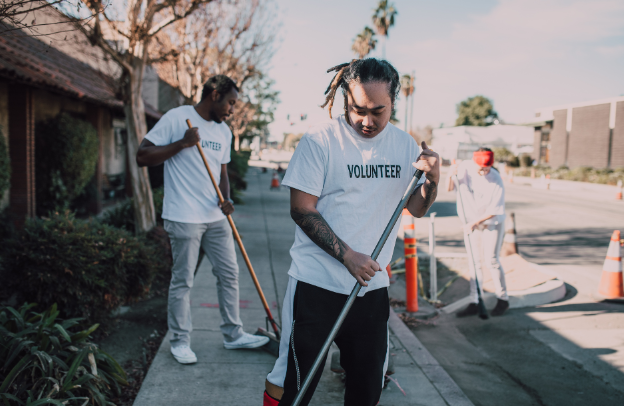Supporting Research and Documentation of the African Diaspora – WeDiasporan Volunteer Series 17/21

Have you ever wondered about the stories that never get told? The rich, vibrant histories of people who have left their homelands, carrying their culture, their pain, their triumphs, and their hopes? What happens to these stories when they remain undocumented? The African diaspora is filled with such untold stories, stories of resilience, struggle, and identity that are often forgotten or ignored.
Learn How to Leverage Your Story through our Story To Asset Framework.
But what if we told you that your story, or the stories of those around you, can shape history, preserve cultural heritage, and inspire generations to come?
At WeDiasporan, the importance of storytelling goes beyond just sharing experiences about preserving legacies, connecting communities, and reclaiming our narrative. Every African migrant, every descendant, every community member carries a story worth sharing.
And it is through the hard work of volunteers, especially those in the Research and Documentation Assistant roles, that these stories come to life.
If you have ever felt a pull to document history, to give voice to the voiceless, or to ensure that the past isn’t forgotten, then volunteering with WeDiasporan might be your calling.
The Vital Role of Research and Documentation Assistants
Imagine for a moment that you are tasked with capturing the essence of an entire culture, the heartbeats of millions who have moved across borders, oceans, and continents, seeking freedom, opportunity, or safety.
As a Research and Documentation Assistant at WeDiasporan, your job is to do just that—to preserve and amplify the stories of African migrants, their descendants, and their communities.
See also How Indigenous Knowledge Systems Can Strengthen the African Diaspora
But it’s more than just collecting facts. Your role involves listening to people, delving deep into their memories, and carefully documenting their experiences. You might conduct interviews, gather written stories, or even record oral histories, all in an effort to ensure that these stories are not lost to time.
The work you do is an act of cultural preservation, helping to ensure that the history of the African diaspora is passed down to future generations.
As a volunteer, you will have the chance to contribute to this ongoing project, one that spans across continents, connects individuals from various walks of life, and creates a tapestry of narratives that showcase the true depth and complexity of the African diaspora experience.
Why It’s Crucial to Document the African Diaspora’s Stories
Documenting the stories of the African diaspora is essential because it captures the complex and evolving identities shaped by migration, globalization, and cultural dislocation.
Writers like Chimamanda Ngozi Adichie and Sefi Atta have played a pivotal role in this process through their short fiction, which reflects the lived experiences of contemporary African women navigating the challenges of displacement and identity in a globalized world.
In collections like The Thing Around Your Neck and News from Home, these authors chronicle how African women must redefine themselves in foreign environments, confronting both external cultural clashes and internal struggles of belonging.
Their works highlight how diaspora identities are often ambiguous and fragmented, shaped by the tension between tradition and modernity, home and abroad.
Through the lens of postmodernism, these stories reveal that African women’s identities are no longer confined to familiar structures such as patriarchy and traditional customs. Instead, they are being reshaped by transnational forces and new socio-economic realities.
The fiction of Adichie and Atta brings these diaspora experiences to the forefront, exploring themes of hybridity, cultural conflict, and alienation.
By documenting these narratives, their stories preserve the nuanced voices of African women in diaspora, offering insight into the personal and collective transformation that occurs in the face of displacement. This documentation is not only an act of storytelling but a vital contribution to global literature and cultural memory.
However, it’s important to remember that the African diaspora has shaped the world in countless ways, from the civil rights movements in the U.S. to the rise of global African culture in music, art, and fashion.
What this also means is that without preserving the stories of the people who lived these experiences, we risk losing a crucial part of the global narrative. Research and documentation are tools for reclaiming these lost histories, elevating voices that have often been silenced or marginalized.
Researcher and author Chimamanda Ngozi Adichie once spoke about the dangers of a “single story,” a one-dimensional narrative that fails to capture the full richness of a culture.
By documenting the diverse stories within the African diaspora, volunteers like you can help counteract this single story by showing the full complexity and beauty of African identities, struggles, and achievements. This is what we are talking about.
Cultural Identity and Storytelling: Why It Matters
One of the most powerful aspects of storytelling is its ability to shape identity. For many people within the African diaspora, particularly those who are second- or third-generation migrants, the stories they hear from their elders and communities become the bedrock of their cultural identity.
See also Cultural Identity and Social Change: How Your African Heritage Powers Your Storytelling
These stories connect them to their roots, offering a sense of pride and continuity in the face of displacement.
Documenting these stories helps preserve not only individual experiences but also collective memories that form the fabric of cultural identity. By recording these stories, you’re contributing to a larger movement of cultural preservation that ensures the richness of African heritage is never lost, even as people move and adapt to new environments.
Never forget that storytelling is a powerful tool for building empathy and understanding. That’s also why the African Diaspora Storytelling Series, a live event created by Obehi Ewanfoh, is so important. Dedicated to empowering individuals of African descent through the art of storytelling, this series creates a vital platform for sharing authentic voices and lived experiences.
By highlighting the journeys of African migrants and the members of the diasporan community, the series helps audiences, both within and beyond the diaspora, to connect with the richness and challenges of those stories.
It fosters a sense of solidarity and contributes to a global community that respects and values the depth, diversity, and complexity of the African diaspora experience.
A Global Impact: How Documentation Can Influence the World
The power of storytelling extends far beyond the confines of one community. The stories you help preserve and share have the potential to influence global narratives about race, migration, and identity.
In a world where African migrants are often seen through the lens of negativity, stigma, and struggle, the work of documenting their stories can change perceptions and inspire solidarity.
Consider the impact that well-documented narratives can have in shaping public opinion. A powerful story about the triumphs of an African migrant could challenge stereotypes and shift societal attitudes.
These stories can also serve as powerful advocacy tools, pushing for policies that support African migrants, their communities, and their contributions to the global economy.
The significance of documenting migrant experiences is also evident in projects like the African Heritage Preservation Project or the African Diaspora Oral History Project, which focus on documenting the experiences of African migrants worldwide.
By contributing to these kinds of initiatives, volunteers ensure that the voices of African migrants are included in the global conversation about migration, race, and culture.
Collaborating with Experts to Ensure Authenticity
At WeDiasporan, volunteers don’t work in isolation. You’ll be collaborating with historians, cultural experts, and community leaders to ensure that the stories you’re documenting are accurate, authentic, and meaningful.
These collaborations not only enhance the quality of your work but also provide you with invaluable insights into the complexities of African diaspora history.
Working with experts in cultural preservation, oral history, and migration studies ensures that the stories you document are not just anecdotal but are woven into the broader historical and socio-political context. This helps to ensure that the history you’re preserving is not only truthful but impactful.
Looking to the Future: A Legacy of Stories
As we look ahead, the importance of preserving African diaspora stories only grows. With the rise of digital platforms and social media, new opportunities for documenting and sharing stories have emerged.
See also Building a Strong Brand Identity for Plantain: Standing Out in a Competitive Market
Volunteers like you can play an essential role in ensuring these stories reach a wider audience, whether through digital archives, podcasts, documentaries, or social media campaigns.
The legacy of African diaspora storytelling is one that can transcend borders and time. By preserving these stories, you are helping to build a more inclusive, more empathetic world—one story at a time.
Conclusion: Your Story Matters
Ultimately, the power of storytelling lies in its ability to connect us to our past, to each other, and to the world. As a Research and Documentation Assistant at WeDiasporan, you have the unique opportunity to shape this connection. You’re not just recording facts; you’re preserving legacies, fostering cultural pride, and inspiring the future.
The question is: Will you be part of this movement? Will you take up the pen—or the recorder—and ensure that the stories of African migrants and their descendants are told, heard, and remembered? Because your story—and the stories of those who have yet to speak—are worth telling.
Learn How to Leverage Your Story through our Story To Asset Framework.





